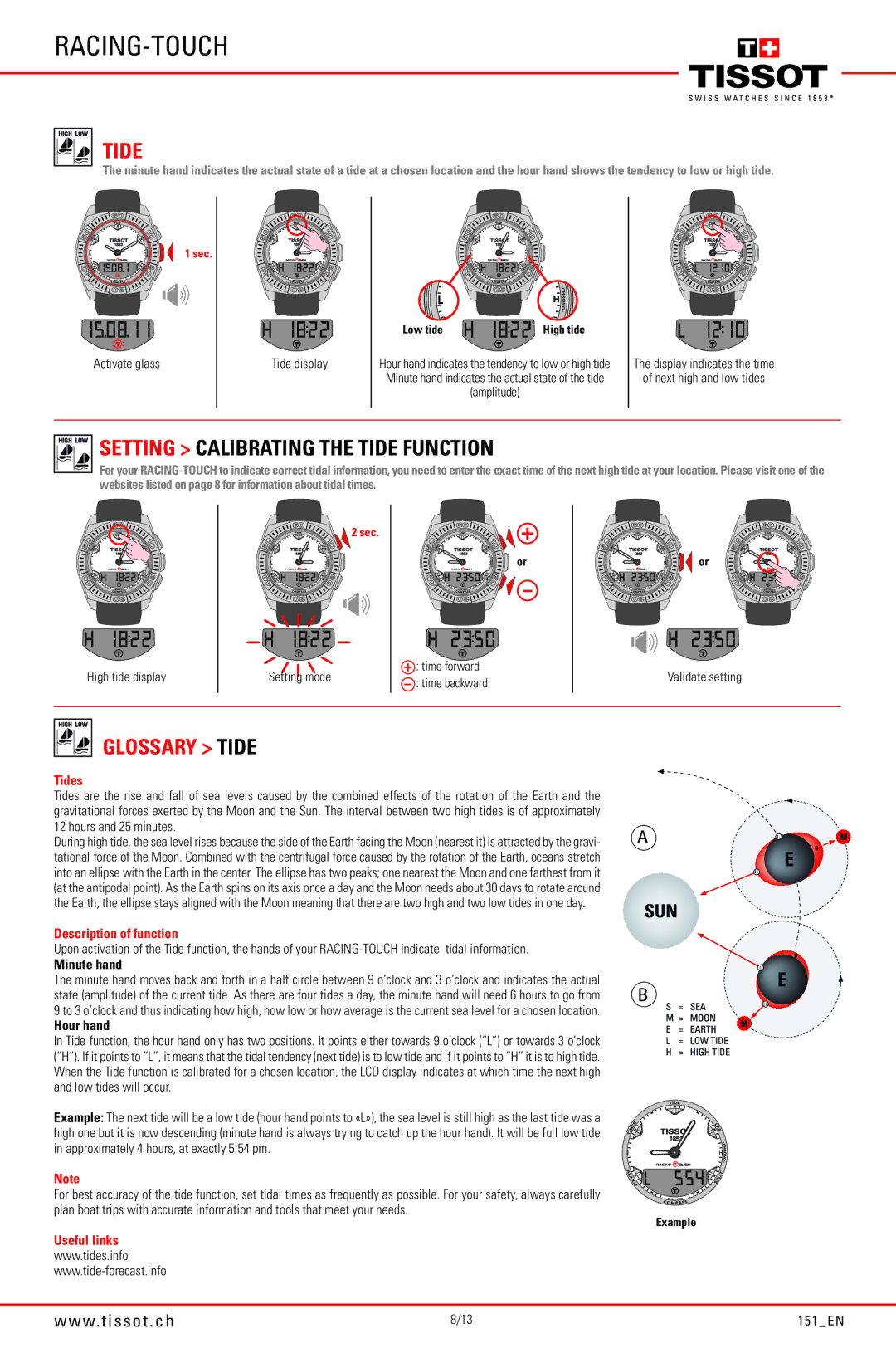
RACING-TOUCH
TIDE
The minute hand indicates the actual state of a tide at a chosen location and the hour hand shows the tendency to low or high tide.
1 sec.
Activate glass
Tide display
Low tide | High tide |
Hour hand indicates the tendency to low or high tide Minute hand indicates the actual state of the tide (amplitude)
The display indicates the time
of next high and low tides
 SETTING > CALIBRATING THE TIDE FUNCTION
SETTING > CALIBRATING THE TIDE FUNCTION
For your

 2 sec.
2 sec.
or
or
High tide display
Setting mode
![]() : time forward
: time forward
![]() : time backward
: time backward
Validate setting
GLOSSARY > TIDE
Tides
Tides are the rise and fall of sea levels caused by the combined effects of the rotation of the Earth and the gravitational forces exerted by the Moon and the Sun. The interval between two high tides is of approximately 12 hours and 25 minutes.
During high tide, the sea level rises because the side of the Earth facing the Moon (nearest it) is attracted by the gravi- tational force of the Moon. Combined with the centrifugal force caused by the rotation of the Earth, oceans stretch into an ellipse with the Earth in the center. The ellipse has two peaks; one nearest the Moon and one farthest from it (at the antipodal point). As the Earth spins on its axis once a day and the Moon needs about 30 days to rotate around the Earth, the ellipse stays aligned with the Moon meaning that there are two high and two low tides in one day.
Description of function
Upon activation of the Tide function, the hands of your
Minute hand
The minute hand moves back and forth in a half circle between 9 o’clock and 3 o’clock and indicates the actual state (amplitude) of the current tide. As there are four tides a day, the minute hand will need 6 hours to go from 9 to 3 o’clock and thus indicating how high, how low or how average is the current sea level for a chosen location.
Hour hand
In Tide function, the hour hand only has two positions. It points either towards 9 o’clock (“L”) or towards 3 o’clock (“H”). If it points to “L”, it means that the tidal tendency (next tide) is to low tide and if it points to “H” it is to high tide. When the Tide function is calibrated for a chosen location, the LCD display indicates at which time the next high and low tides will occur.
Example: The next tide will be a low tide (hour hand points to «L»), the sea level is still high as the last tide was a high one but it is now descending (minute hand is always trying to catch up the hour hand). It will be full low tide in approximately 4 hours, at exactly 5:54 pm.
Note
For best accuracy of the tide function, set tidal times as frequently as possible. For your safety, always carefully plan boat trips with accurate information and tools that meet your needs.
A
B
Example
L
H
L
H
Useful links
www.tides.info
www.tissot.ch | 8/13 | 151_EN |
